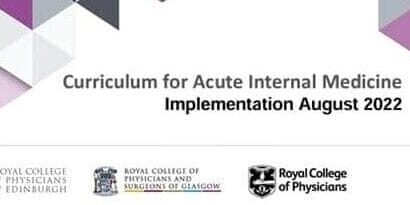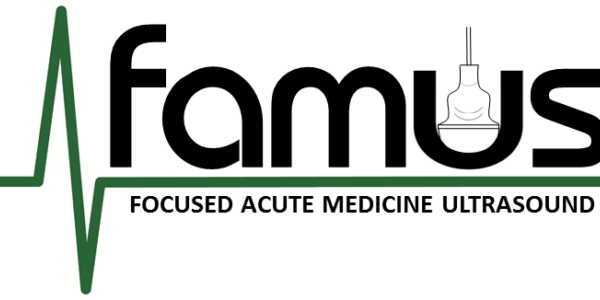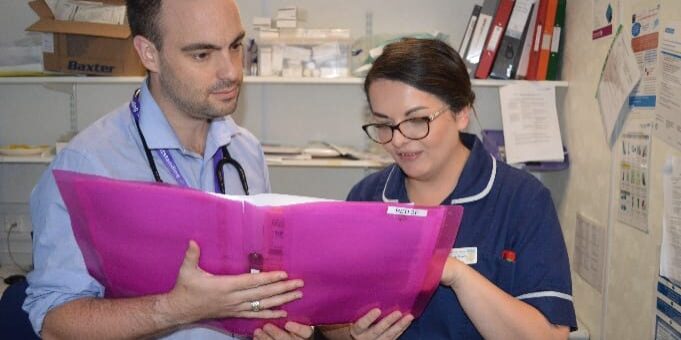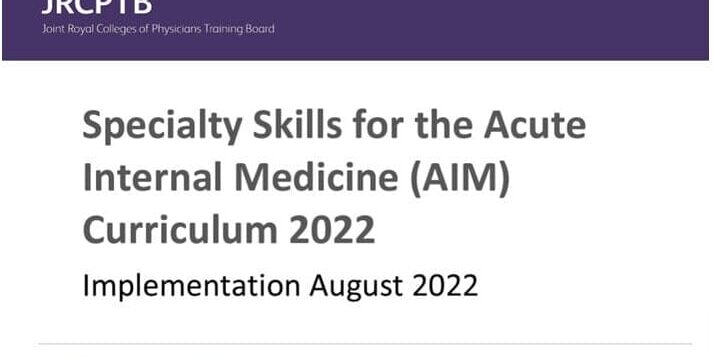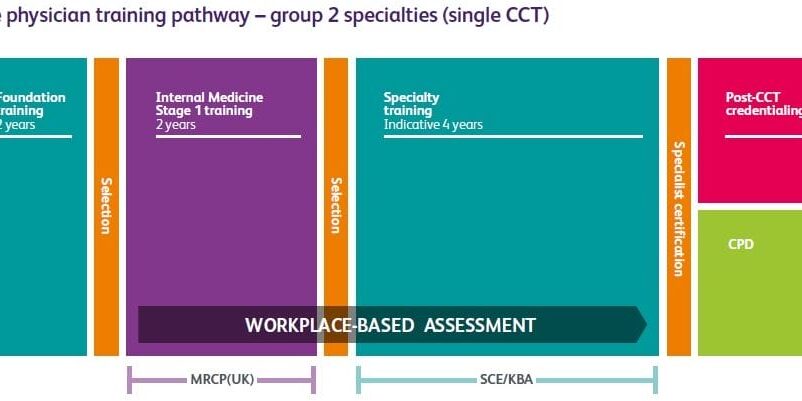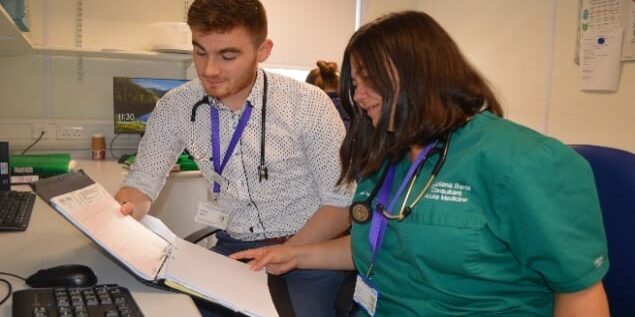Training Hub
Specialty Certificate Examination
The Acute Medicine SCE is an exam designed to test knowledge of various aspects of Acute Medicine. It has been designed to ensure that specialists have sufficient knowledge of their specialty to practice safely and competently as consultants. It should help complement workplace-based assessments in providing an appropriate knowledge-based test of an individual’s competency. Passing the exam should provide confidence in those being treated that they are being seen by a certified specialist.
The exam is compulsory for all trainees on the Acute Medicine curriculum (2009) and optional for Acute Medicine trainees following other curricula. UK Acute Medicine trainees first become eligible to sit the Specialty Certificate Examination after entering year 3 (ST3) of specialist training but would usually be expected to take it during their penultimate year. Passing the SCE gives you the right to put MRCP (UK) (Acute Medicine) after your name if you are an Acute Medicine UK trainee.
The Exam
The exam consist of two papers, each consisting of 100 ‘best of five’ type questions. These may be on any subject contained within the Acute Medicine curriculum. The candidate is to display a level of knowledge equivalent to a consultant practicing in Acute Medicine. This includes knowledge of basic science, clinical scenarios and relevant guidelines and scoring systems.
The 200 questions have been taken from a question bank that has been provided by acute physicians working within the UK. The questions reflect commonly encountered acute clinical problems that may arise within an Acute Medical Unit (AMU). The answers reflect current UK practice as well as national guidelines.
Questions for the exam are distributed accordingly:
Topic Number of questions*
| Cancer and palliative care and haematology | 10 |
| Cardiorespiratory arrest and shock | 10 |
| Cardiovascular medicine | 20 |
| Clinical pharmacology & poisoning | 10 |
| Diabetes and endocrine medicine | 14 |
| Gastroenterology and hepatology | 20 |
| Infectious diseases | 14 |
| Medicine in the elderly | 18 |
| Musculoskeletal system | 12 |
| Neurology and ophthalmology | 20 |
| Renal medicine | 10 |
| Respiratory medicine | 20 |
| Other | 22 |
Where “other” consists of:
- Clinical science
- Dermatology
- Public health and health promotion
- Psychiatry
- Allergy
- Clinical genetics
- Immunology
- Complications after surgery
- Statistics
*the exact proportion of questions may vary between diets.
Further information:
Thirty seven sample questions are available on the MRCP website. With time 50 sample questions will be available.
Contact:
If you have any questions or would like some guidance on the SCE, please do not hesitate to get in touch with Claire Gardner on cjgardner@doctors.org.uk
Websites:
- Joint Royal College of Physicians Training Board: Acute Internal Medicine & Sub-specialty of acute medicine
- MRCP website: www.mrcpuk.org
- National Institute for Health and Care Excellence (NICE) website: www.nice.org.uk
- Royal College of Physicians: Acute Medicine
- Scottish Intercollegiate Guidelines Network (SIGN) website: www.sign.ac.uk
- Society for Acute Medicine: Document Library
Textbooks:
- Ramrahka, P.; Moore, K. & Sam, A. (2010) “Oxford Handbook of Acute Medicine” Oxford University Press: Oxford
- Roseveare, C (2009) “Acute Medicine: Clinical Cases Uncovered” Wiley-Blackwell: Chichester
- Warell, D.; Cox, T. & Firth, J. (2010) “Oxford Textbook of Medicine” Oxford University Press: Oxford
- Lane N., Powter L., Patel S. (2016) “Best of Five MCQs for the Acute Medicine SCE” Oxford University Press: Oxford
Journals:
- Acute Medicine Journal (Rila)
- Clinical Medicine Journal (Royal College of Physicians)
Documents (PDF)
- Joint Royal College of Physicians Training Board (2012) Speciality training curriculum for acute internal medicine
- MRCP SCE in Acute Medicine Blue Print
There are a number of guidelines which may help you in your preparation for the examination which can be found in the link below



